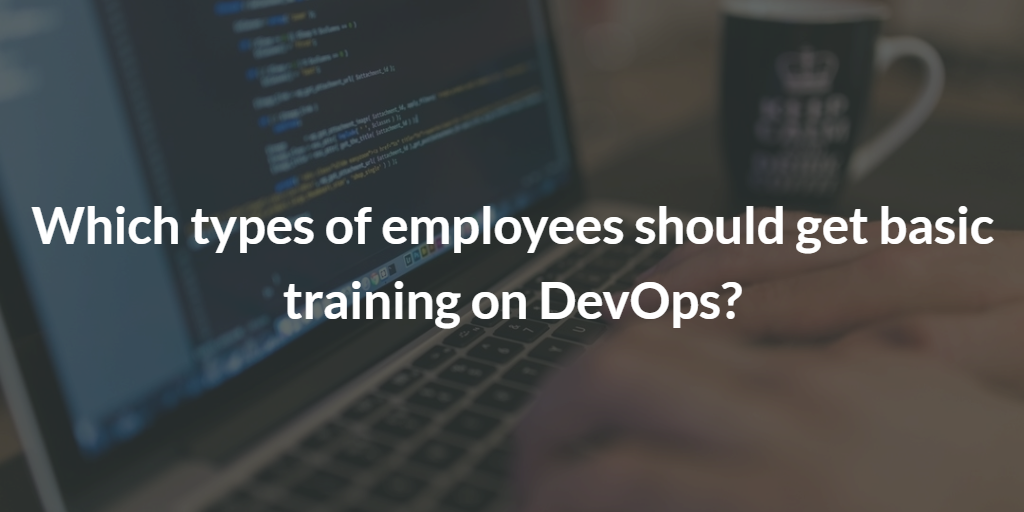If your organization hasn’t adopted DevOps approaches yet, it probably will soon.
In the Interop ITX 2018 State of DevOps Report, only 9 percent of the business technology decision-makers surveyed said that their organizations had no DevOps plans. A third said their organizations had already adopted DevOps principles and another 46 percent had plans to do so within the next two years.
As DevOps spreads, many IT leaders have questions about which types of employees should get basic training on the fundamentals of the approach. We recommend that at least the following ten types of people get a foundational education about DevOps:
1. Developers
In many organizations, DevOps begins with the application development team adopting Agile methodologies. DevOps begins to spread as those in the operations team start to follow some of the same principles.
2. IT operations professionals
DevOps is all about closer integration between development and operations, so it stands to reason that the people involved in deploying, configuring and maintaining your applications and infrastructure will need to understand what DevOps is all about.
3. QA/testing professionals
The testing team plays a critical role in continuous integration and continuous delivery, and having this group on board is one of the keys to successful DevOps adoption.
4. Project managers
The switch from waterfall development to agile processes means PMs need to radically rethink the way they put together schedules and workflow plans.
5. IT managers
No DevOps implementation can succeed unless managers are actively championing the approach and encouraging staff to use DevOps principles on a day-to-day basis.
6. IT executives
Some of the most successful DevOps teams are those with CIOs, CTOs, and directors of IT who are advocating for the adoption of the approach.
7. Business stakeholders
DevOps affects those on the business side who work regularly with IT just as much as it affects IT professionals. If everyone can speak the same language, it will make the entire company more productive.
8. IT security professionals
Many organizations aren’t just adopting DevOps; they are adopting DevSecOps, which brings security into the mix and requires everyone in the IT organizations to be responsible for security.
9. Consultants
If your clients are going to be adopting DevOps approaches, you need to understand how that changes their culture, technology and processes — even if your consulting practice doesn’t directly concern DevOps, lean, Agile or IT service management.
10. IT vendors
Ditto for technology suppliers. If you want organizations to choose your tools and solutions, you need to demonstrate that your products and services are designed for the way work gets done in DevOps environments.
Of course, many experts would tell you that anyone who works in IT or with IT could benefit from learning the basics of the DevOps approach. While it’s become something of a cliché, it is true that DevOps requires a cultural transformation. When everyone on the team has the same shared knowledge and shared vocabulary, it makes it that much easier to implement the cultural change.
Attending that training together, whether it occurs virtually or in a physical classroom, offers the additional benefit of a shared experience. It also gives team members the opportunity to learn from each other and begin to make some of the changes that will be necessary for their cultural transformation.
If you have team members who could benefit from a basic understanding of DevOps, we encourage you to consider a DevOps Foundation certification
Source: © 2019 DevOps Institute. All Rights Reserved.








